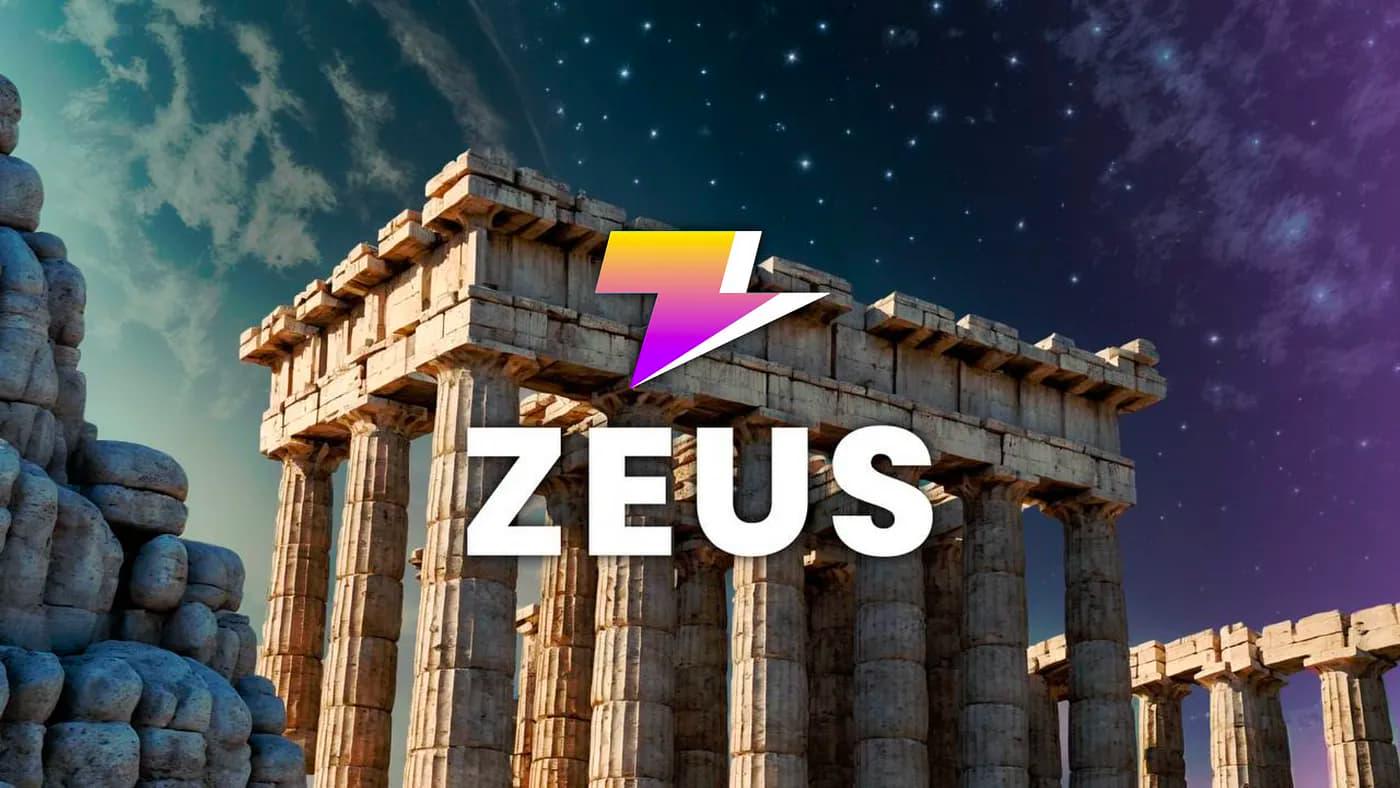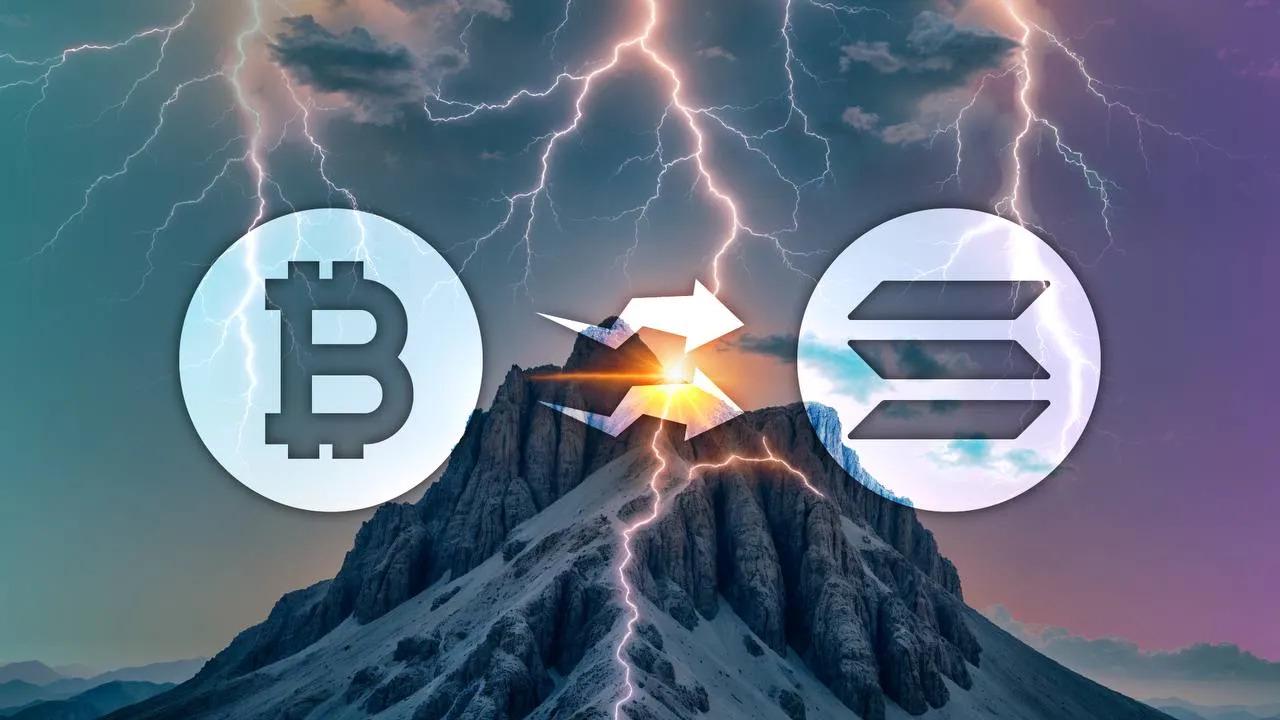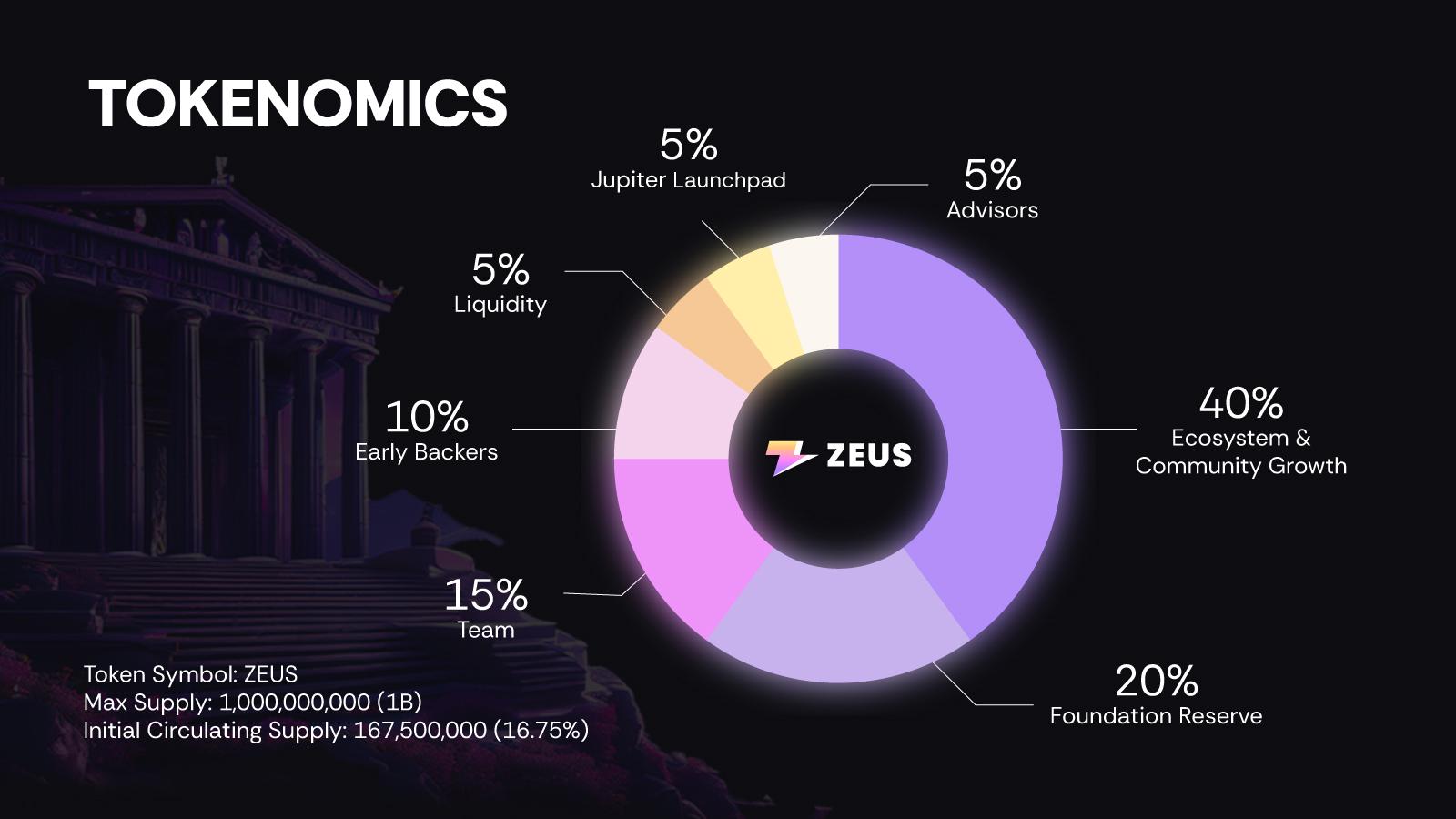Zeus Network won the highest vote in the first round of LFG launchpad in Jupiter and will issue $ZEUS tokens on April 4. What is the potential of Zeus Network?
Author: Zen, PANews
At 9pm on April 4, Zeus Network, the first public offering project of Jupiter LFG Launchpad, will release its $ZEUS Token, and distributed airdrops to more than 300,000 addresses including Jupiter voting participants, Zealy participants, and Dappie Gang NFT holders.
LFG launchpad由Solana生态交易聚合器Jupiter发起,其于上个月完成的首期LFG投票旨在挑选出两个精品项目,并让优胜者有机会通过该平台发行代币。 这次投票吸引了17.5万人参与,最终跨链通信项目Zeus Network以58%的得票率强势胜选。
In addition to gettingCommunityZeus Network has received widespread support and has been favored by multiple investors and investment institutions. On the evening of April 3, it announced a new round of financing of US$8 million, led by Mechanism Capital, with participation from OKX Ventures, Animoca Ventures, Big Brain Holdings, Lemniscap and The Spartan Group, as well as angel investors such as Solana co-founder Anatoly Yakovenko, Stacks co-founder Muneeb Ali and Mechanism Capital founder Andrew Kang.
At the end of last year, Zeus Network appeared in the public eye as a native, permissionless communication layer built between Solana and Bitcoin. However, as the project continues to develop, its vision is obviously not limited to this.
Zeus Network: The potential and possibilities of cross-chain communication layer
Different from the traditional bridging mechanism, Zeus Network does not simply transfer assets from oneBlockchainTransfer to anotherBlockchainInstead, it introduces a communication layer in BTCBlockchainBitcoinSafetyLock and transfer their value to Solana without the need for asset bridging. This provides users with efficient,Safetyasset transfer and transaction experience.
然而,Zeus Network作为跨链通信层的功能还不止于此,基于SVM(Solana虚拟机)Zeus层的高性能和高吞吐量,它不仅可以将比特币的流动性引入到Solana生态系统中,也能够将跨链通信的应用扩展到任何区块链,为不同区块链之间的互操作性提供了可能。
Specifically, Zeus Network has the ability to connect multiple blockchain networks. At this stage, as a bridge connecting multiple blockchain networks, it mainly focuses on connecting different blockchains with Solana. This cross-chain capability enables developers to interact and communicate between dApps built on Solana and other blockchains, and realize cross-chain transmission of data and value. In the future, Zeus Network is expected to further expand its cross-chain communication capabilities, enabling cross-chain dApps to run and deploy on multiple blockchains, thereby expanding its application scope and providing users with a wider range of services and application scenarios.
As a platform for connecting and communicating different blockchain networks, starting from the Solana ecosystem, Zeus Network is expected to promote the integration and development of the blockchain ecosystem and provide developers and users with solutions for seamlessly connecting different blockchains. This will create more room and possibilities for innovation and promote the construction of more complex and feature-rich blockchain applications.
The first application in the ecosystem will release BTC liquidity to Solana
基于创新的的Zeus 共识,Zeus Network 的第一步棋旨在无缝促进BTC与Solana之间的互联互通,为在Solana区块链上与比特币互动提供安全、高效和去中心化的解决方案 ,其旗舰项目APOLLO的推出将开启这一突破性的探索之旅。 Apollo是一个综合的DeFi基础设施,利用zBTC和Zeus共识机制在Solana生态系统中引入及管理BTC流动性。
zBTC代表了Solana网络中的内在资产,通过一个无需信任的、去中心化的双向锚定(2WP)机制,确保与比特币之间的1:1锚定。 该过程基于一个基于信任的协议,允许用户在比特币区块链上锁定他们的BTC,并在Solana上以zBTC的形式使用和交易。 而通过采用多签名联盟验证和SPV验证机制,zBTC实现了比特币在锁定和解锁过程中的安全性,防止潜在的欺诈或双重支付等问题,也使得在Solana上进行BTC交易更加高效和轻量 ,同时保证了比特币的安全锁定和在Solana上的流动性。
This mechanism can bring more liquidity and use cases to the Solana ecosystem and promote the development of the DeFi ecosystem. For example, zBTC can cooperate with DeFi protocols such as Solend, marginfi, and Kamino Finance as one of the liquidity providers of various DeFi protocols on Solana, providing users with more liquidity options, or as a collateral asset.Xiaobai NavigationIt is used for lending, leveraged trading, etc., as well as the joint development of innovative financial products and services. It helps to improve the diversity and integrity of the DeFi ecosystem and provide users with a wider range of financial services and a better user experience.
Utility Token $ZEUS: Nearly half is used to promote ecology andCommunitydevelop
$ZEUS代币总供应量为10亿枚,其中40%的部分将会用于促进Zeus网络生态系统和社区的增长和发展,其中该部分10%的代币将在代币生成事件(TGE) 时释放,包括对Zeus社区用户的空投等。 作为实用代币,$ZEUS在Zeus Network中还具有多种功能和价值,适用于多个应用场景,包括:
-
Security: Holders can leverage $ZEUS tokens to enhance security features within the Zeus Network ecosystem, ensuring a robust and protected environment for transactions and interactions.
-
Gas/Fuel/Service Access: $ZEUS tokens serve as a means to access and utilize various services within the Zeus Network ecosystem, such as paying transaction fees, powering smart contracts, and more.contractProvides fuel, or access to specific network functionality.
-
Governance: $ZEUS token holders are entitled to participate in governance decisions regarding the future development and direction of the Zeus Network platform. This includes voting on proposals, protocol upgrades, and other key decisions that affect the ecosystem.
-
Incentives: Participants in the Zeus Network ecosystem may receive incentives in the form of $ZEUS tokens for their contribution to the growth and functionality of the network. This may include rewards for providing liquidity, staking tokens, or participating in community initiatives.
In addition to nearly half of the tokens belonging to the ecosystem and community, according to the token economics of $ZEUS, $ZEUS will also be allocated to early supporters, Launchpad sales, liquidity, foundation reserves, teams and advisors, and different cliffs and vesting periods are tailored for each part to ensure coordinated and sustainable distribution:
-
Early supporters and sponsors of the Zeus network (10%), 5% of which will be released at the TGE, with a 3-month waiting period and a 15-month vesting period;
-
Jupiter Launchpad sale (5%), all 100% will be released at TGE;
-
Liquidity, providing market makers andexchange(5%), 100% is fully released at TGE;
-
Ecosystem and community growth (40%), 10% of which will be released at TGE and vested linearly over 24 months;
-
Foundation reserves (20%), to support ongoing operations and future development, 10% of which will be released at TGE and vested linearly over 24 months;
-
Core team members who participate in building and maintaining the Zeus network (15%) will not release tokens during the TGE, and there will be a 3-month waiting period, followed by a 15-month vesting period;
-
Advisors (5%) who provide guidance and support to the Zeus Network project will have their 5% released at the TGE, with a 6-month waiting period and a 15-month vesting period.
According to the technical roadmap recently released by the project, this year it will focus on promoting the establishment of Zeus network nodes, enhancing the utility of Zeus network tokens, and enabling native BTC staking (APOLLO), and continuously upgrade and optimize the Zeus Layer mainnet beta. Among them, Zeus will launch the Muses upgrade in the second quarter of this year, focusing on the development of Zeus nodes to ensure the operation of the network, while also promoting the launch of Apollo test network V0.3; launch the Gaia upgrade in the third quarter, introduce $ZEUS staking and native $BTC staking on the Zeus network; launch the Athena upgrade in the fourth quarter, and release the Zeus Programming Library (ZPL) for project development.
At present, Zeus Network plays an important role in unleashing the full potential of Bitcoin on Solana. Through its unique cross-chain communication mechanism, Zeus Network ensures the secure verification of Bitcoin-side assets, achieves seamless communication with Solana, and paves the way for the unlimited possibilities of Bitcoin on Solana.
As one of the drivers supporting the Solana ecosystem, Zeus Network stands out through its unique interoperability. In the future, its goal is to use Zeus consensus and Solana virtual machine to overcome Bitcoin’s limitations and facilitate token exchanges,walletIntegration, BTC Layer 2 integration, and more features on the Zeus network. If these efforts are implemented, they will further promote the development of the blockchain field and bring users a richer and faster financial experience.
The article comes from the Internet:Zeus Network won the highest vote in the first round of LFG launchpad in Jupiter and will issue $ZEUS tokens on April 4. What is the potential of Zeus Network?
Related recommendation: Türkiye’s regulatory turnaround: Will it trigger a Web3 boom?
土耳其政府最近宣布了一系列新的加密货币监管措施,但实现这一目标的道路并不平坦。 撰文:Nikolai Kuznetsov 编译:TaxDAO 加密货币在任何特定司法管辖区的运营许可,都可能由政府或国家领导人的观点而通过或取消。土耳其政府最近宣布了一系列新的加密…



